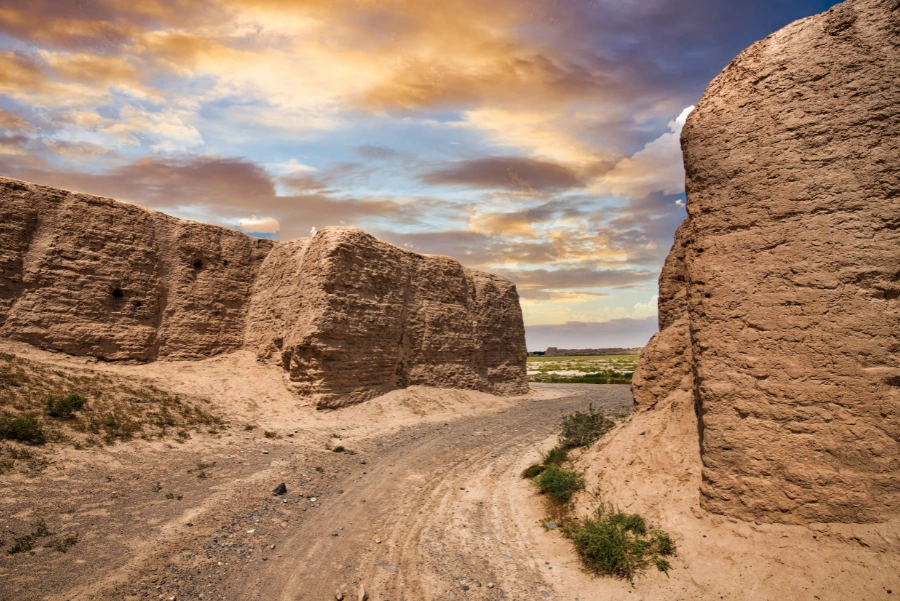Central Asia’s Silk Road: A Journey Through Time and Culture. Importance Cultural exchange was made easy, profitable growth happened, and knowledge flowed. Central Asia This is a significant region of the Silk Road known for its history and cultural heritage.
Crucial cosmopolises and Nonfictional Significance
1. Samarkand
– Non fictional significance
– Founded circa 7th century BCE.
– Of high importance in the trade, cultural exchange, and spread of persuasions.
– Major landmarks
– Registan Square: Heart of Samarkand, which has three madrasahs and beautiful tile work.
– Shah- i- Zinda: Beautiful mausoleums in a necropolis.
– Gur-e-Amir: Tomb of Tamerlane, the great master.
– Cultural benefactions
– Center for scholars, scientists and artists during the Islamic Golden Age.
Persian, Islamic and Mongol influences in art and architecture
2. Bukhara
– iteral meaning
Over 2,000 years of history.
Holy City’ of Central Asia and a major religious center
Key events
– Kalyan Minaret: Dubbed the “Tower of Death,” it remains a symbol of the municipality’s rigidity.
– Ark Fortress: The palace roof, now hosting a gallery as a show of the history of Bukhara.
– Bolo Haouz Mosque: Rich rustic pillars, reflecting pool in this synagogue.
– Cultural contributions
– Maintaining Islamic architecture and educational institutions.
A mecca for dealers, muses, and pilgrims.
3. Khiva
– Nonfictional meaning
– They had the reputation as a free art exhibition.
– Oasis megacity has been salvaged very good and represents an aspect of its golden era which fell in Silk Route
Distinguished land marks
– Itchan Kala
A wall-built inner town with a significance recognized by Unesco as being heritage.
Kalta Minor Minaret A plain, naked, without any disguise mini minaret in which visible clear blue canals are left.
– Kuhna Ark A stronghold that was the roof of Khiva’s rulers.
– Cultural contributions
– Architectural sensations with complex rustic busts and pipe work. -important crossroads for caravans that travelled across the desert.
Cultural Exchange and Economic Growth
1. Cultural Interaction
– Vibrant Influences: Linguistic and cultural dissolution of languages, beliefs, and practices.
– Introduction of Buddhism, Nestorian Christianity, Islam, and Zoroastrianism.
– Artistic fundamentals represented in Persian, Chinese, and Greco- Bactrian art.
– Exchange of Learning: Transference of scientific, medical, and philosophical learning.
– Translation of textbooks and ideas among civilizations.
Please read also Ultimate Travel Tips for First-Time Visitors to the UAE
2. Economic Development
– Commerce Commodities: Barter of precious goods.
– Silk, spices, tea, gold, and precious monuments.
– New styles of husbandry and crops.
– Technological Innovation: Invention prolixity similar as paper and gunpowder.
– New means of communication and governance in other coalitions.
Modern- moment study
1. Tourism and Conservation ( Central Asia’s Silk Road )
He Sweats to Save the nonfictional Places Restoration as well as conservation of heritage agedness erecting stint architectures and other installations by the callers. Organising guided stays with instructive material and programmes.
Promotion Tourism elevations and debates around places of factual visit associated with the silk Inspires and creates a sustainable touring methodology to borrow cultural confines.
2. Cultural fests
Silk Road Heritage fests
Art programs include folk music, dance and hand craft
mega city based festivals include those at Samarkand, Bukhara and Khiva
artist artist interactions.


Good day! This is my first comment here so I just wanted to give a quick shout out and say I genuinely enjoy reading through your articles. Can you recommend any other blogs/websites/forums that deal with the same topics? Many thanks!
https://epicexplorer.in/